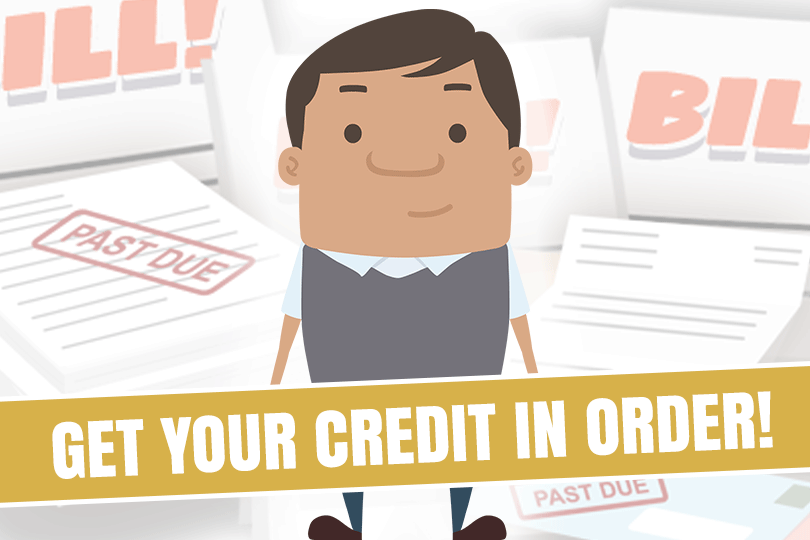When Should I Get Approved for a Home Loan?
January 31, 2022
WHAT IS A PREAPPROVAL
A mortgage pre-approval starts with an examination of your finances. It is when a lender uses a potential borrower’s financial information, credit score, debt-to-income comparison, employment history, and other critical information to determine whether or not to loan them a specific amount of money. When applying for a pre-approval with a lender, you will know exactly how much you can borrow to buy a home and at what interest rate. Depending on your lender, you may be able to lock in the interest rate for when your final mortgage application gets approved.
THE PREAPPROVAL PROCESS
To start the pre-approval process, you will need to file an application with a lender. The application typically has eight sections that cover a number of different details.
- Loan type and terms
- Information about the property and purposed of the loan
- Applicant’s information (name, date of birth, social security number, etc)
- Employment information
- Monthly income and housing expenses
- Assets and Liabilities
- Details of Transaction
- Declarations
WHEN TO GET YOUR MORTGAGE PREAPPROVAL LETTER
The pre-approval for a home loan is typically valid for 60 to 90 days. The time limit is set by mortgage lenders because your finances and credit standing can change. You have until the set expiration date to finalize the loan with the terms outlined in the Loan Estimate. If your pre-approval expires, you will need to submit a new application with updated documentation.
Having a preapproval letter ready when you are shopping for a house gives homebuyers an advantage. The official document shows sellers that you are a serious buyer and are financially able to follow through on your offer. Sellers are more likely to negotiate on the price with buyers who are pre-approved for a mortgage, and most of the time, they choose not to entertain offers from buyers without the preapproval letter.
PRE-QUALIFICATION VS. PREAPPROVAL
While both terms are used interchangeably, it is important that you as a borrower know the difference between pre-qualifying and being pre-approved for a mortgage.
To pre-qualify for a loan, you must provide an overview of your finances, income, and debts to a lender, who then determines an amount they are likely to loan to you. That is why pre-qualifying for a loan is a useful way to estimate what kind of home you can afford.
On the other hand, the lender takes a much more in-depth look at your finances during the preapproval process, since it includes a credit check and a look at actual documentation, such as bank statements, pay stubs, tax returns, W-2 statements, etc. Consequently, the preapproval letter holds more weight when it comes to placing an offer on a home, since there is a hard inquiry into your credit, and lenders have taken the time to verify you as an eligible borrower.
Remember that a pre-approval does NOT guarantee you a loan. Your preapproval letter is contingent on whether or not the financial and employment information you provided is consistent before your loan closes. Buying a home is a big decision, and it is in your best interest to go in to it prepared with a pre-approval, so talk to your lender about your next steps on getting pre-approved!
------------------------------
RELATED VIDEOS:
Home Equity Can Secure Your Second Mortgage
Consider the Advantages of Discount Points
FHA Limits are Calculated and Updated Annually

FHA Loan Articles
January 15, 2025Buying a condo with an FHA loan is an option some don’t consider initially, but it’s worth adding to your list of potential property types. FHA loans for condo units traditionally require condo projects to be on or added to the FHA-approved list. Still, changes in policy over the years allow borrowers to apply for FHA loans on condo units in projects not on the list on a case-by-case basis.
December 30, 2024When applying for an FHA loan, lenders will consider more than just your credit scores and history. They also look at other factors affecting your risk profile and the interest rate they offer you.
One factor is occupancy type. For FHA loans, this is straightforward because these loans require owner occupancy. Investment properties aren't eligible. While conventional loans may have different rates for primary residences, second homes, and investment properties, this isn't a concern with FHA loans.
December 18, 2024Did holiday spending get the better of you? Are you looking for ways to recover your spending plan as you search for a new home?
The holidays are a whirlwind of festivities, family gatherings, and gift-giving. But amidst the cheer, it's easy to lose track of spending. If you're aiming to buy a home in the near future, those extra expenses can have a bigger impact than you might realize, especially if you're considering an FHA loan.
December 17, 2024The Federal Housing Administration provides mortgage insurance on loans made by FHA-approved lenders, making homeownership more attainable for those who might not qualify for conventional loans.
While financial factors like credit score and debt-to-income ratio are key to loan approval, other non-financial aspects can also cause a denial.
December 11, 2024FHA loans, insured by the Federal Housing Administration, are a popular choice for many homebuyers, especially those who need a lower downpayment or more forgiving credit qualifying requirements. FHA loans are primarily intended for primary residences—homes that borrowers will occupy as their main dwelling.







